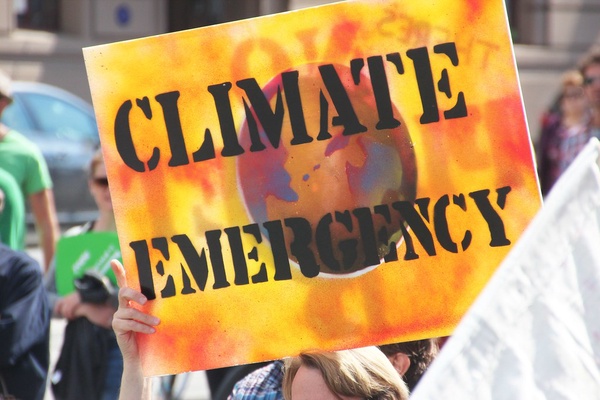Initially created to regulate futures derivatives on crops that had yet to be harvested, the Commodity Futures Trading Commission (CFTC) holds newfound possibility in the coming decade. It is absolutely crucial that a modern-day CFTC taps into the power it already holds to lead on climate action. Naturally, this necessitates a leader with a proven record of taking on corporate power. Any appointee should be prepared to advocate for the public interest, acknowledge the current reality of climate decay we find ourselves in, and creatively apply tools of the government to take immediate action.
The primary climate-related role of Biden’s CFTC will be to tackle climate risk within its existing powers of regulating commodities and derivatives markets. As we have previously written, a necessary step to every financial regulatory agency’s ability to incorporate climate risk will be to create standardized, adaptable, and scientifically accurate measuring strategies. The Chairperson of the CFTC does have a role as one of just ten voting members on the Financial Stability Oversight Committee (FSOC), which could play a key role in creating those standards. No matter who does, and regardless of the difficult task ahead, it is absolutely obligatory that climate risk become universally understood and utilized by every financial regulatory agency including the CFTC.
Once the CFTC has a working measure of climate risk, it should incorporate its usage into each of its functions. This must be done both in order to protect the financial system from climate-related damage and to address how the financial activities under their jurisdiction continue to worsen the climate and ecological crisis.
Currently, the CFTC has jurisdiction over futures markets under the Commodity Exchange Act. Under existing regulations, the CFTC requires swap dealers in the commodities and derivatives markets to disclose market, credit, liquidity, foreign currency, and “any other applicable risks.” Under that last clause, the CFTC should require climate change risks also be disclosed from both sellers and buyers. This would look like a seller being required to inform a customer of potential climate risk in a deal they’re offering, and a buyer being required to inform the seller of climate-related risk in their ability to repay. Ideally, this would encourage parties to make more environmentally sound decisions — both (hopefully) for the humanitarian reason of minimizing climate change, and (realistically) for the cold logic that investments exposed to climate risks (rising sea levels, smaller crop harvests, etc.) are less likely to be lucrative.
The CFTC’s regulatory powers over the derivatives market also includes creating and enforcing a mandate that market actors, including clearinghouses, merchants, and executing facilities, have adequate capital for managing risk. The CFTC can thus extend this power to require market actors to hold adequate capital for managing climate risks. Measured properly, this might require market actors to take on such additional precautions that they may be deterred from even bothering with the heavy risks of climate change-exacerbating and -exposed investment. This is one important tool the CFTC should use to push markets toward a greener future, but it again requires adequate metrics and calculations for climate risk.
The next CFTC chairperson must also incorporate climate risk into supervisory “stress tests” for derivatives clearinghouses. So far, these stress tests have failed to include possible physical risks related to climate change, which is unjustifiable at this point in time.
There are many actions a climate-aware CFTC chairperson should take; creative thinking in this area should be what President Biden looks for in his nominees, not their palliness with the industries the CFTC regulates. The next CFTC chair must be up to the challenge of moving forward immediately on legitimate and long-overdue climate action steps. Those who have been quiet on this issue, or are enthusiastic about aiding market fads rather than addressing the looming devastation of life as we know it, simply don’t have their priorities properly aligned and are unfit to lead in the 21st century. Biden should understand that it is non-negotiable that his pick to lead the CFTC must have a strong record of taking on corporate power and be prepared to continue doing so with urgency and unwavering commitment.
Photo: “Climate Emergency – PeoplesClimate-Melb-IMG_8280” by John Englart (Takver) is licensed under CC BY-SA 2.0

